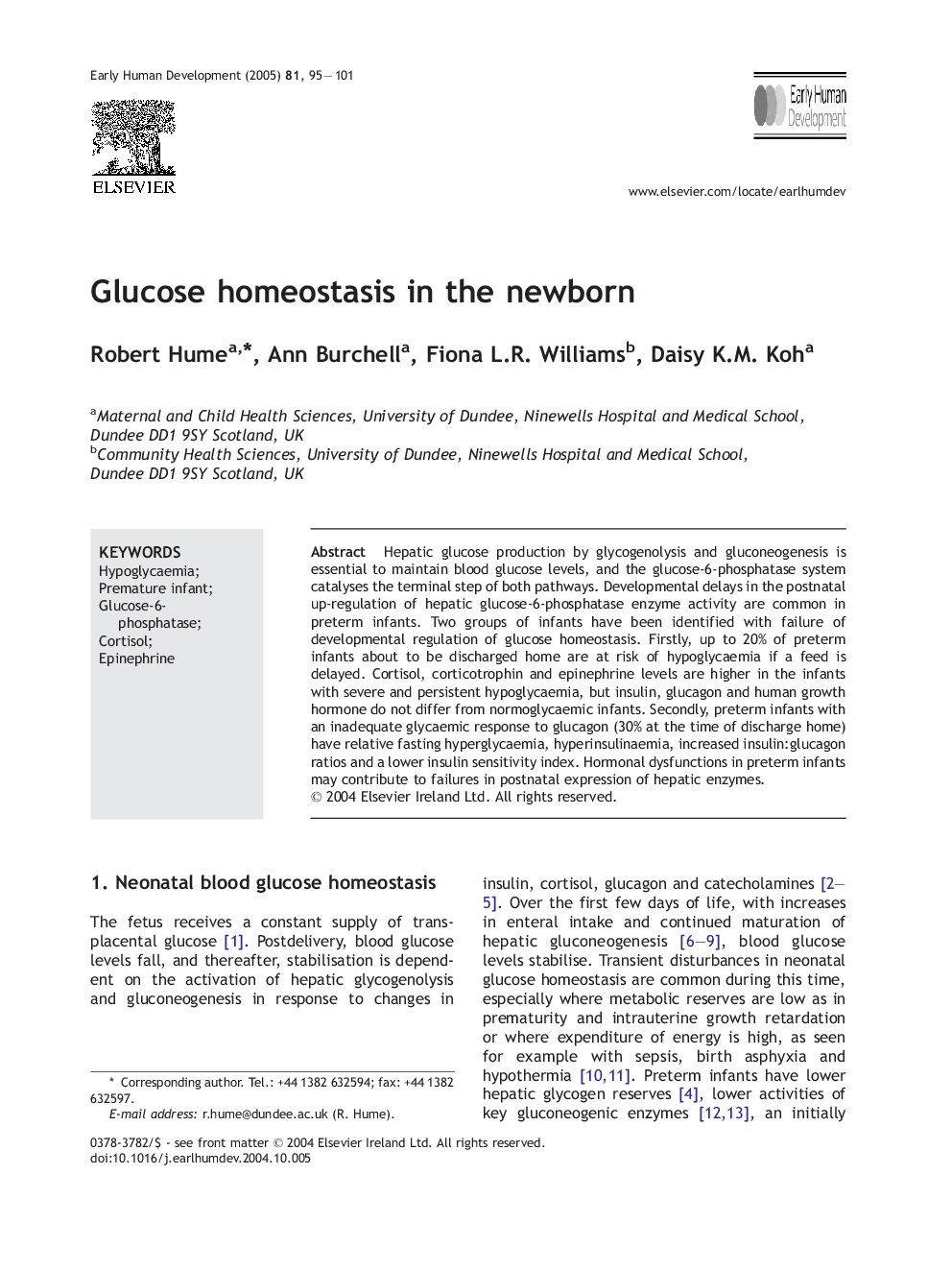| Article ID | Journal | Published Year | Pages | File Type |
|---|---|---|---|---|
| 9318751 | Early Human Development | 2005 | 7 Pages |
Abstract
Hepatic glucose production by glycogenolysis and gluconeogenesis is essential to maintain blood glucose levels, and the glucose-6-phosphatase system catalyses the terminal step of both pathways. Developmental delays in the postnatal up-regulation of hepatic glucose-6-phosphatase enzyme activity are common in preterm infants. Two groups of infants have been identified with failure of developmental regulation of glucose homeostasis. Firstly, up to 20% of preterm infants about to be discharged home are at risk of hypoglycaemia if a feed is delayed. Cortisol, corticotrophin and epinephrine levels are higher in the infants with severe and persistent hypoglycaemia, but insulin, glucagon and human growth hormone do not differ from normoglycaemic infants. Secondly, preterm infants with an inadequate glycaemic response to glucagon (30% at the time of discharge home) have relative fasting hyperglycaemia, hyperinsulinaemia, increased insulin:glucagon ratios and a lower insulin sensitivity index. Hormonal dysfunctions in preterm infants may contribute to failures in postnatal expression of hepatic enzymes.
Related Topics
Health Sciences
Medicine and Dentistry
Obstetrics, Gynecology and Women's Health
Authors
Robert Hume, Ann Burchell, Fiona L.R. Williams, Daisy K.M. Koh,
